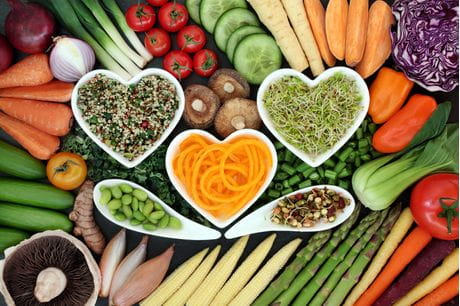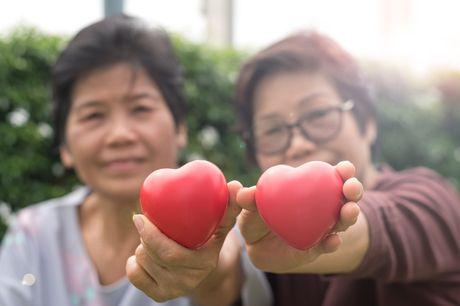Foods to avoid after a heart attack
After a heart attack, your body needs time to recover. Learn which foods to eat and which ones to stay away from to help keep your heart its healthiest.
After a heart attack, recovery is key. Depending on your situation, your doctor may suggest lifestyle changes, which means you may find yourself needing to break old, unhealthy habits. In addition to quitting smoking, reducing stress, exercise and emotional support, a heart-healthy diet is one of the most important lifestyle changes you can adopt to help you recover from a heart attack and reduce your risk of future heart issues.
“Many people don’t realize how connected diet is to heart health. One of the best things someone can do to reduce their risk of heart attack or stroke is to eat right. It’s never too late to start adopting healthier habits,” says Dr. Michael Lesko, a cardiologist at Geisinger Grey’s Woods.
Eat your way to better health
Having high blood pressure, high cholesterol and/or diabetes all bring increased odds of heart disease and other health issues. By implementing a heart-healthy diet, you can reduce your heart attack risk.
If you’ve already experienced a heart attack, your care team will work with you to help you make necessary dietary changes, such as cutting back on salt, saturated fat and alcohol. Remember, it’s OK to start small. Breaking old habits and building healthy new ones doesn’t always happen overnight.
So, where to start?
A good place is your snack pantry. Stock your shelves with heart-healthy snacks that are low in salt and saturated fat such as unsalted nuts, low-fat Greek yogurt, berries, apples or celery with nut butter, air-popped popcorn, fruit smoothies, unsweetened dried fruit and diced veggies with hummus.
One of the best ways to keep your heart its healthiest after experiencing a heart event, including a heart attack, is by following a plant-based diet. Food choices can be focused around:
- Plant-based proteins, such as quinoa, lentils, tofu and seitan
- Healthy fats (extra virgin olive oil, avocados, soybean and safflower oil, flax seeds, etc.)
- Oily fish (salmon, mackerel, trout, etc.)
- Wholegrain-style bread, pasta, cereal and brown rice
- Dark, leafy greens
- Fruits and vegetables (aim for 7 total servings of fruits and veggies daily)
- Low-fat dairy products
- Plain, unsalted nuts and seeds
Lean meats (trimmed of the fat and poultry without the skin) are OK in moderation.
“A great method of finding the healthiest foods at the grocery store is to avoid the middle aisles. Walk around the perimeter of the store to find fresh produce, lean meats, low-fat dairy and whole grains. Stick with whole foods and avoid ones that come from a factory. Your heart will thank you,” Dr. Lesko says.
Foods to avoid after a heart attack
To aid in your recovery after a heart attack, you’ll want to avoid these things:
- Fried foods
- Foods with high levels of sodium
- Processed or cured meats (lunch meats, sausage, prosciutto, etc.)
- Sugary beverages, like soda
- Canned vegetables (which can be packed with salt)
- Sweets
- Alcohol in excess
“Check with your doctor on what foods you should and shouldn’t eat. If you aren’t sure whether you should eat it, ask your doctor,” advises Dr. Lesko.
Stay heart-healthy, even after a heart attack
Changing your diet doesn’t have to feel like a punishment. By gradually adding in healthy foods, as well as reducing stress and getting regular exercise, you can live healthier and feel better. Adding heart-healthy supplements can deliver added protection for your heart.
If you’ve recently suffered a heart attack, talk with your doctor to find the right diet for your personal needs. He or she may refer you to a nutritionist or dietitian to help you meet your goals and keep your heart healthy and strong.
Next steps:
Make an appointment with Dr. Lesko
Find a heart health provider





